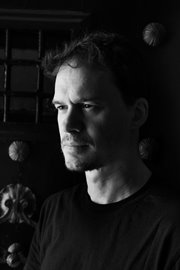Long-Term Projects - 1st Prize
Kho, the Genesis of a Revolt
Romain Laurendeau
09 February, 2016
Moh and his friends, all born in Bab el-Oued, Algiers, Algeria, hang out on their favorite terrace.
Young people make up more than half of Algeria’s population, and according to a UNESCO report 72% of people under 30 in Algeria are unemployed. Pivotal moments in Algerian history, such as the ‘Black October’ revolt of 1988, have had angry youth at their core. Black October was harshly suppressed—more than 500 people were killed in five days—and was followed by a ‘black decade’ of violence and unrest. Thirty years on, the effects of that decade are still present. In a traumatized country, high unemployment leads to boredom and frustration in everyday life and many young people feel disconnected from the state and its institutions. Football, for many young men, becomes both an identity and a means of escape, with quasi-political groups of fans known as ‘Ultras’ playing a large and sometimes violent role in protests. In neglected working-class neighborhoods such as Bab el-Oued in Algiers, young people often seek refuge in diki—private places that are ‘bubbles of freedom’ away from the gaze of society and from conservative social values. But the sense of community and solidarity is often not enough to erase the trials of poor living conditions. In February 2019, thousands of young people from working-class neighborhoods again took to the streets in what became a nationwide challenge to the reign of long-time president Abdelaziz Bouteflika.
Kho (the word means ‘brother’ in colloquial North-African Arabic) is about the genesis of a revolt. It is the story of the deep unease of youth, who, by daring to challenge authority, inspired the rest of the population to join their action, giving birth to the largest protest movement in Algeria in decades.
Romain Laurendeau
Romain Laurendeau trained in photography at ETPA in Toulouse, France and has worked on long term projects as a professional photographer in France, Senegal, Algeria and Palestini...
Through our education programs, the World Press Photo Foundation encourages diverse accounts of the world that present stories with different perspectives.
Our exhibitions showcase stories that make people stop, feel, think and act to a worldwide audience.
Our annual contest recognizes and rewards the best in photojournalism and documentary photography.
